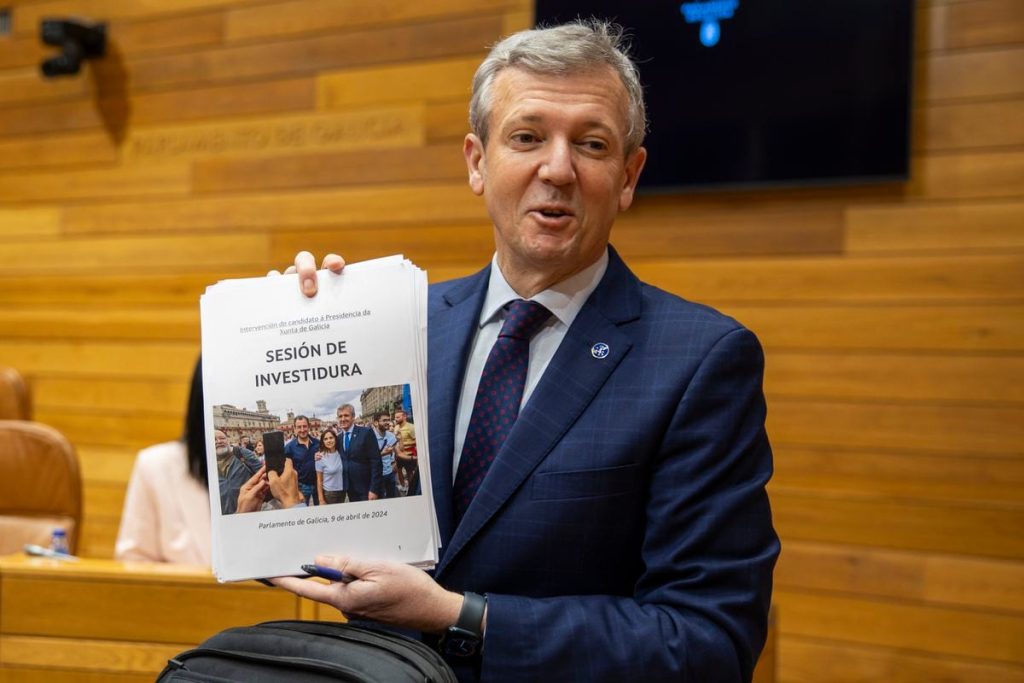Alfonso Rueda recently faced his first test at the polls with his mentor fighting to advance his career towards La Moncloa. Unlike the four campaigns that led Alberto Núñez Feijóo to the presidency of Galicia, Rueda had to focus his electoral messages on issues like amnesty, Bildu, Puigdemont, and the “rupture” of Spain. Despite this, he was very successful and secured an overwhelming absolute majority. Upon taking office, Rueda has decided to align himself with Feijóo’s opposition strategy to Pedro Sánchez by creating a “Constitutional Affairs Office” within his government that will report to the Legal Adviser’s Office. Rueda emphasized the importance of defending the Constitution and stability in Spain, while also promising dialogue with Sánchez and rejecting extreme stances.
Rueda strongly criticized the idea of granting amnesty to Catalan separatists, believing it would only lead to further instability in Spain. He accused the Sánchez government of being focused on its own survival and willing to sacrifice the unity of the country for political gain. Despite his strong stance on these issues, Rueda also expressed a willingness to engage in dialogue with Sánchez and work towards the progress of Galicia while maintaining loyalty to the central government. He emphasized that Galicia will not remain silent in the face of challenges to its rights and dignity, particularly in comparison to Catalonia.
In his speech at the Galician Parliament, Rueda addressed various social and legal problems related to industrial projects in Galicia, such as wind farms and a cellulose plant proposed by a Portuguese company. He defended the independence of government officials in evaluating these projects, vowed to defend them in court against populist opposition, and spoke out against individuals who oppose industrial projects based on ideology rather than practical considerations. Rueda also announced plans for further tax cuts on inheritances, easing access to fertility treatments, expanding public housing, and promoting extracurricular activities for children.
Rueda offered the opposition an industrial pact that would include measures to boost investment and employment in Galicia. He promised to expedite the approval process for major projects and create a separate Department of Environment to ensure compliance with regulations and streamline proceedings. Additionally, he pledged to govern in the best interests of Galicia and make decisions that prioritize the region’s development. The opposition parties have criticized Rueda’s proposals, with the BNG and PSdeG-PSOE questioning the lack of strategic projects and calling for more comprehensive plans.
The investiture debate will continue with responses from the opposition parties, who have expressed differing opinions on Rueda’s speech. Ana Pontón of the BNG criticized Rueda’s proposals as lacking vision and innovation, while José Ramón Gómez Besteiro of the PSdeG-PSOE accused him of hostility and a lack of clear direction. Armando Ojea of DO announced that his party would abstain from the vote due to the PP’s perceived lack of support for Ourense, their home province. Overall, Rueda’s focus on constitutional matters, economic development, and environmental issues sets the tone for his government’s agenda in Galicia.


